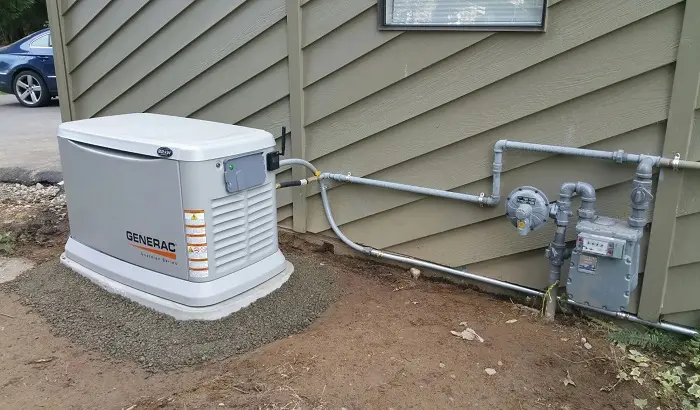When it comes to choosing a generator, understanding its capabilities is essential. A 7500-watt generator is a powerful option for home use, camping, or construction sites. This article will explore what a 7500W generator can run, its features, and considerations for use.
A 7500-watt generator provides a reliable power source for various applications. Whether you need backup power during an outage, a reliable source for outdoor events, or portable power for construction projects, knowing what you can run with a 7500W generator is crucial.
Understanding Generator Power Ratings
What Does 7500 Watts Mean?
The wattage of a generator indicates its power output capacity. In simple terms, 7500 watts means the generator can supply a continuous power load of 7500 watts. However, it’s important to differentiate between running watts and starting watts.
Running Watts: The power required to keep appliances operating.
Starting Watts: The additional power needed to start appliances with motors, like refrigerators or air conditioners.
Typically, a generator’s starting wattage is higher than its running wattage. For a 7500W generator, the running wattage is often around 6000-7500 watts, while the starting wattage may reach 10,000 watts or more.
Common Uses for a 7500W Generator
A 7500W generator can be used in various scenarios, including:
Home Backup Power: During outages, you can power essential household appliances.
Construction Sites: Power tools and equipment when working off the grid.
Camping: Supply electricity for recreational vehicles (RVs) and outdoor events.
Events: Provide power for gatherings, parties, or festivals.
Appliances and Equipment a 7500W Generator Can Run
Here’s a breakdown of common household and outdoor appliances and their power requirements, along with what you can typically run with a 7500W generator.
Essential Home Appliances
Refrigerator:
Running Watts: 200-800 watts
Starting Watts: 1000-2000 watts
Usage: Can run continuously to keep food cold during a power outage.
Freezer:
Running Watts: 200-700 watts
Starting Watts: 1000-2000 watts
Usage: Similar to refrigerators, useful for maintaining frozen foods.
Air Conditioner:
Running Watts: 2000-4000 watts
Starting Watts: 3000-6000 watts
Usage: A 7500W generator can power smaller units but may struggle with larger ones.
Heating System:
Running Watts: 1500-4000 watts
Starting Watts: 2000-5000 watts
Usage: Useful for electric heaters or small space heaters.
Water Heater:
Running Watts: 3000-4500 watts
Starting Watts: 4500-6000 watts
Usage: A generator can supply power for electric water heaters, but may need to be turned off if other heavy appliances are running.
Power Tools and Equipment
Table Saw:
Running Watts: 1500-3000 watts
Starting Watts: 3000-4000 watts
Usage: Great for woodworking or construction projects.
Circular Saw:
Running Watts: 1200-1800 watts
Starting Watts: 1500-2500 watts
Usage: Useful for various cutting tasks.
Drill:
Running Watts: 600-800 watts
Starting Watts: 1000 watts
Usage: For drilling tasks, including construction or DIY projects.
Running Watts: 1200-4000 watts
Starting Watts: 1500-6000 watts
Usage: Good for powering pneumatic tools.
Recreational and Outdoor Equipment
RVs:
Running Watts: 1500-4000 watts (for air conditioning)
Usage: Can power basic RV amenities, including lights, refrigerator, and air conditioning.
Camping Equipment:
Running Watts: Varies widely; most lights and small appliances run between 100-1500 watts.
Usage: Ideal for lighting, cooking, and powering entertainment systems.
Outdoor Events:
Usage: Can power sound systems, lighting, and cooking appliances for gatherings.
Electronics
Television:
Running Watts: 100-400 watts
Usage: Can power multiple TVs.
Computer:
Running Watts: 300-800 watts (depending on the setup)
Usage: Useful for home offices or remote work setups.
Phone Chargers:
Running Watts: 5-20 watts
Usage: Can charge multiple devices at once.
Calculating Power Needs
Steps to Determine Your Power Needs
List Your Appliances: Write down all the appliances you want to run.
Check Power Ratings: Look up the wattage for each appliance.
Calculate Total Running Watts: Add the running watts of all appliances.
Add Starting Watts: Include the starting wattage for appliances with motors.
Example Calculation
Suppose you want to run the following:
Refrigerator: 800 watts (starting: 1200 watts)
Freezer: 600 watts (starting: 1000 watts)
Air Conditioner: 3500 watts (starting: 5000 watts)
Microwave: 1000 watts (starting: 1000 watts)
Total Running Watts: 800 + 600 + 3500 + 1000 = 4900 watts
Total Starting Watts: 1200 + 1000 + 5000 + 1000 = 8200 watts
In this case, a 7500W generator could run the refrigerator, freezer, and microwave simultaneously but might struggle with the air conditioner unless you stagger the usage.
Generator Features to Consider
1. Fuel Type
Generators typically run on gasoline, propane, or diesel. Choose a fuel type that best suits your needs and availability:
Gasoline: Common and easy to find but can be less fuel-efficient.
Propane: Cleaner burning and can be stored indefinitely.
Diesel: More efficient but typically heavier and more expensive.
2. Portability
Consider a generator with wheels and handles if you plan to move it frequently. Weigh the generator to ensure it fits your transportation needs.
3. Noise Level
Look for generators with a lower decibel rating, especially for residential or camping use. Inverter generators tend to operate more quietly than standard generators.
4. Outlets and Connectivity
Ensure your generator has enough 120V outlets to accommodate your needs. A combination of standard and heavy-duty outlets is beneficial for various appliances.
5. Runtime
Choose a generator with a longer runtime to reduce the frequency of refueling. Look for models that offer at least 8-10 hours of operation at half load.
6. Safety Features
Safety features like low-oil shutdown, overload protection, and carbon monoxide detectors can prevent accidents and equipment damage.
Conclusion
A 7500W generator is a versatile and powerful tool that can run a wide variety of appliances and equipment. By understanding your power needs and the capabilities of your generator, you can ensure a reliable power source for your home, work, or outdoor adventures. Always prioritize safety and maintenance for optimal performance and longevity of your generator.
Related topics:

